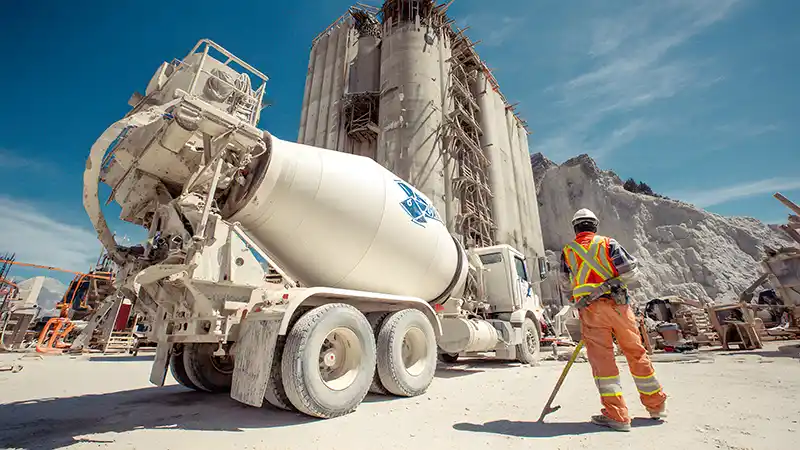The trucking industry is on the cusp of a technological revolution. Autonomous vehicles, once the stuff of science fiction, are now being piloted on highways across the country. For many drivers and fleet professionals, this shift raises a pressing question: If trucks are driving themselves, what happens to the people who’ve built their careers behind the wheel?
The good news is that “driverless” doesn’t mean “jobless.” As automation transforms the industry, it’s also creating a wave of new roles that blend technology, logistics, and human expertise. From advanced truck tech maintenance to fleet data analysis and route supervision, the future of trucking is full of opportunity for those ready to adapt.
The Rise of Automation and What It Really Means
Autonomous trucking technology is advancing at a rapid pace. Major OEMs and tech startups are testing self-driving trucks on long-haul routes, and several states are updating regulations to pave the way for commercial deployment. These vehicles use a combination of sensors, cameras, LIDAR, and artificial intelligence to navigate highways, monitor surroundings, and make split-second decisions.
But even as trucks become more capable of handling the open road, the industry’s complex, real-world operations still demand a human touch. Loading docks, urban deliveries, customer interactions, and unexpected weather all present challenges that technology alone can’t solve, at least not yet. That’s where new roles emerge, ensuring that automation enhances, rather than replaces, the human side of trucking.
Truck Tech Maintenance: The New Backbone of Fleet Reliability
As trucks become more automated, they also become more technologically sophisticated. Today’s autonomous vehicles are essentially rolling computers, packed with sensors, processors, and software that require specialized care. This shift is creating strong demand for a new generation of truck technicians, part mechanic, part IT specialist.
Truck tech maintenance now goes far beyond oil changes and brake jobs. Technicians are responsible for:
- Diagnosing and repairing advanced driver-assistance systems (ADAS)
- Maintaining and calibrating cameras, radar, and LIDAR sensors
- Updating onboard software and cybersecurity systems
- Troubleshooting connectivity issues with fleet management platforms
These roles require a blend of mechanical know-how and digital savvy. Many vocational schools and OEMs are already launching training programs to help technicians upskill for the era of automation. For those who embrace continuous learning, the job outlook is bright, and often comes with higher pay and more career mobility than traditional wrench-turning roles.
Fleet Data Specialists: Turning Information Into Insight
Autonomous trucks generate massive amounts of data every mile they travel. From vehicle diagnostics to route efficiency, safety incidents, and environmental performance, fleets are awash in information. The challenge is turning that raw data into actionable insights that drive better business decisions.
Fleet data specialists are emerging as key players in this new landscape. Their responsibilities include:
- Monitoring real-time vehicle health and performance metrics
- Analyzing route efficiency and identifying opportunities for optimization
- Tracking compliance with safety and regulatory standards
- Developing predictive maintenance schedules based on data trends
This role is ideal for professionals with a knack for analytics, logistics, and technology. Fleet data specialists help companies reduce costs, improve uptime, and ensure that autonomous operations run smoothly. As more fleets invest in telematics and AI-driven analytics platforms, demand for these skills will only grow.
Route Supervisors: Human Oversight for Automated Operations
Even the smartest trucks need human oversight, especially when it comes to complex routing, customer service, and exception management. Route supervisors are evolving into mission-critical roles, blending traditional dispatch expertise with the demands of an automated fleet.
Modern route supervisors are tasked with:
- Overseeing multiple autonomous trucks in real time from a centralized command center
- Intervening remotely when vehicles encounter unexpected obstacles or require rerouting
- Coordinating last-mile deliveries, customer interactions, and handoffs between automated and human-driven segments
- Ensuring compliance with safety protocols and company standards
These professionals act as the bridge between technology and day-to-day logistics. They must be comfortable with digital tools, quick decision-making, and clear communication—skills that are increasingly valued as fleets scale up their autonomous operations.
Upskilling: The Key to Thriving in an Automated Industry
The transition to automation isn’t about eliminating jobs, it’s about changing them. For drivers and fleet professionals, upskilling is the path forward. Many companies are investing in training programs, certifications, and partnerships with technical schools to help their teams adapt.
For example, a driver with years of on-the-road experience can transition into a route supervision role, leveraging deep operational knowledge in a new context. Technicians can learn to diagnose sensor arrays and cybersecurity systems. Even data-curious team members can move into analytics, helping fleets harness the power of information.
The Human Edge: Why People Still Matter
Automation is transforming trucking, but it can’t replace the human qualities that keep freight moving, judgment, adaptability, and problem-solving. As technology takes over repetitive or hazardous tasks, people are freed up to focus on higher-value work: managing exceptions, improving customer service, and driving operational excellence.
In fact, many fleets are discovering that automation, when paired with skilled human oversight, leads to better safety, higher efficiency, and more satisfied customers. The future belongs to those who can blend technical expertise with the irreplaceable human touch.
Conclusion: Embracing Opportunity in a Changing Industry
The rise of autonomous trucks doesn’t spell the end of jobs in trucking, it signals the start of new careers that are smarter, safer, and more rewarding. By embracing roles in truck tech maintenance, fleet data analysis, and route supervision, today’s workforce can help shape the future of transportation.











